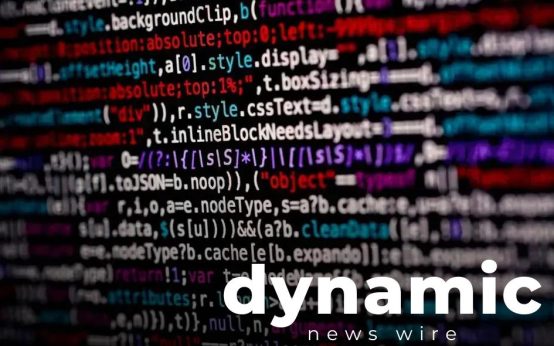Quantum computing is poised to revolutionize the tech industry by offering unprecedented computational power. By leveraging quantum bits instead of traditional binary systems, it enables incredible speed and efficiency. From enhancing artificial intelligence to ensuring robust data security, the potential applications are vast. In this article, we’ll explore the fundamentals of quantum computing, its current challenges, and how it could shape the future of technology, addressing key areas from data security to machine learning.
The Basics of Quantum Computing
Quantum computing is a revolutionary approach to processing information, leveraging the principles of quantum mechanics. Unlike classical computers, which rely on bits as the smallest unit of data, quantum computers use quantum bits, or qubits, allowing them to encode information in quantum states. This enables simultaneous processing of vast amounts of data.
In classical computing, a bit can be either 0 or 1. However, quantum superposition allows qubits to exist in multiple states at once. This means that a quantum computer can perform many calculations simultaneously, opening up possibilities far beyond the reach of traditional computers.
Another critical concept in quantum computing is entanglement. When qubits become entangled, the state of one qubit becomes dependent on the state of another, no matter the distance separating them. This property can potentially solve complex problems faster than any classical computer could.
Quantum computing is still in its infancy, with research ongoing to understand how to control and maintain qubit states effectively. However, as the technology advances, we can expect profound implications across various industries. The tech industry, in particular, could be transformed by the speed and efficiency of quantum computing, revolutionizing areas like cryptography, material science, and complex system modeling.
Current Limitations and Challenges

Quantum computing is still in its infancy, and there are several limitations and challenges that need to be addressed. One major issue is the need for extremely low temperatures to maintain qubits in a coherent state. Current quantum computers require cryogenic cooling systems that are both expensive and energy-intensive. Moreover, qubits are highly susceptible to external disturbances like magnetic fields and temperature fluctuations, leading to error rates that are significantly higher than those found in classical systems.
Another challenge is scalability. While classical computers leverage integrated circuits to increase processing power, increasing the number of stable qubits in a quantum processor is a complex task. Researchers are exploring different technologies, such as superconducting qubits and trapped ions, but achieving reliability at scale remains elusive.
The lack of standardization in the industry poses an additional hurdle. Different companies use different methods and materials for constructing quantum computers, which creates a fragmented research landscape. Unified approaches could accelerate advancements in the field. Lastly, the financial and computational cost of developing quantum hardware is prohibitive, limiting widespread commercial development in the near future.
Potential Impact on Data Security
The advent of quantum computing brings with it a significant potential impact on data security, primarily due to its ability to solve complex mathematical problems much faster than traditional computers. In particular, quantum computing could revolutionize encryption techniques currently in use. Present-day cryptographic systems, which secure our data, rely on the difficulty of factoring large numbers—a task classical computers find challenging. However, quantum algorithms like Shor’s algorithm could break these codes with relative ease, posing a threat to current security paradigms.
At the same time, quantum computing brings the promise of quantum encryption methods, which may offer unprecedented levels of data protection. Techniques such as quantum key distribution (QKD) provide a mechanism for secure communication that could be resilient against both quantum and classical attacks. QKD ensures that any attempt to eavesdrop on the quantum channel alters the transmission, alerting the parties involved.
As quantum computing continues to develop, it becomes imperative for the tech industry to adapt and innovate new security measures. This will include the exploration of post-quantum cryptography, which aims to create encryption methods invulnerable to quantum attacks. Organizations need to stay informed and prepared for these rapid changes, integrating potentially quantum-resistant solutions into their cybersecurity strategies.
Quantum Computing in AI and Machine Learning

Quantum computing offers novel ways to approach complex problems in AI and Machine Learning. By leveraging quantum mechanics’ principles, quantum computers can process information in fundamentally different ways compared to classical computers. This allows them to solve specific tasks exponentially faster, transforming AI algorithms by allowing more significant data sets and more complex models to be processed quickly.
Enhanced Machine Learning with Quantum Algorithms
Quantum algorithms can optimize the learning process by reducing the time needed to train models. For example, quantum algorithms like Grover’s can perform searches faster; this can enhance pattern recognition, a fundamental part of machine learning. Additionally, quantum neural networks can potentially model complex systems that classical networks struggle with due to computational limits.
Revolutionizing Forecasting and Predictions
One significant application of quantum computing in AI is improving forecasting and prediction accuracy. This can have vast implications, from enhanced weather predictions to better financial market forecasts. Moreover, the ability to handle more variables means simulations can become more precise. While the current state of quantum computing is in its early days, accelerating AI and machine learning’s capability keeps researchers and industry players striving to integrate quantum advancements for a leading edge in tech.
The Future of Quantum Computing in Tech
The realm of technology stands on the cusp of a significant transformation with advances in quantum computing. As we gaze into the future, the integration of quantum technology promises to revolutionize the tech landscape. Companies and research institutions are investing heavily in developing quantum processors capable of conducting calculations previously thought impossible. This could lead to groundbreaking improvements in areas such as cryptography, optimization, and simulation.
One significant way quantum computing is expected to transform the tech industry is through
enhanced data processing speeds
. Quantum computers leverage quantum bits, or qubits, allowing them to process and analyze vast amounts of data at unprecedented rates. This might be particularly transformative for fields reliant on heavy data computation, such as pharmaceuticals, where drug discovery processes could become significantly faster and more efficient.
Furthermore, as quantum computing technology progresses, it is anticipated to contribute substantially to advancements in artificial intelligence. The capability to handle and analyze large datasets swiftly can enhance machine learning models, leading to more accurate predictions and categorization. This opens up new opportunities in autonomous systems, personalization in user interfaces, and even more effective cybersecurity measures.
The path forward for quantum computing in the tech industry, although promising, entails overcoming substantial technical and engineering challenges. The need for ultra-low temperature environments to maintain qubit stability and the ongoing research into error correction are significant hurdles. However, the continuous evolution in these areas suggests a future wherein quantum computing could redefine boundaries across diverse tech sectors.


 Understanding Zero Trust Security Models: A Beginner’s Guide
Understanding Zero Trust Security Models: A Beginner’s Guide  Best Practices to Protect Your Data Online: Essential Tips
Best Practices to Protect Your Data Online: Essential Tips  The Role of Generative AI in Content: Transforming Creation
The Role of Generative AI in Content: Transforming Creation